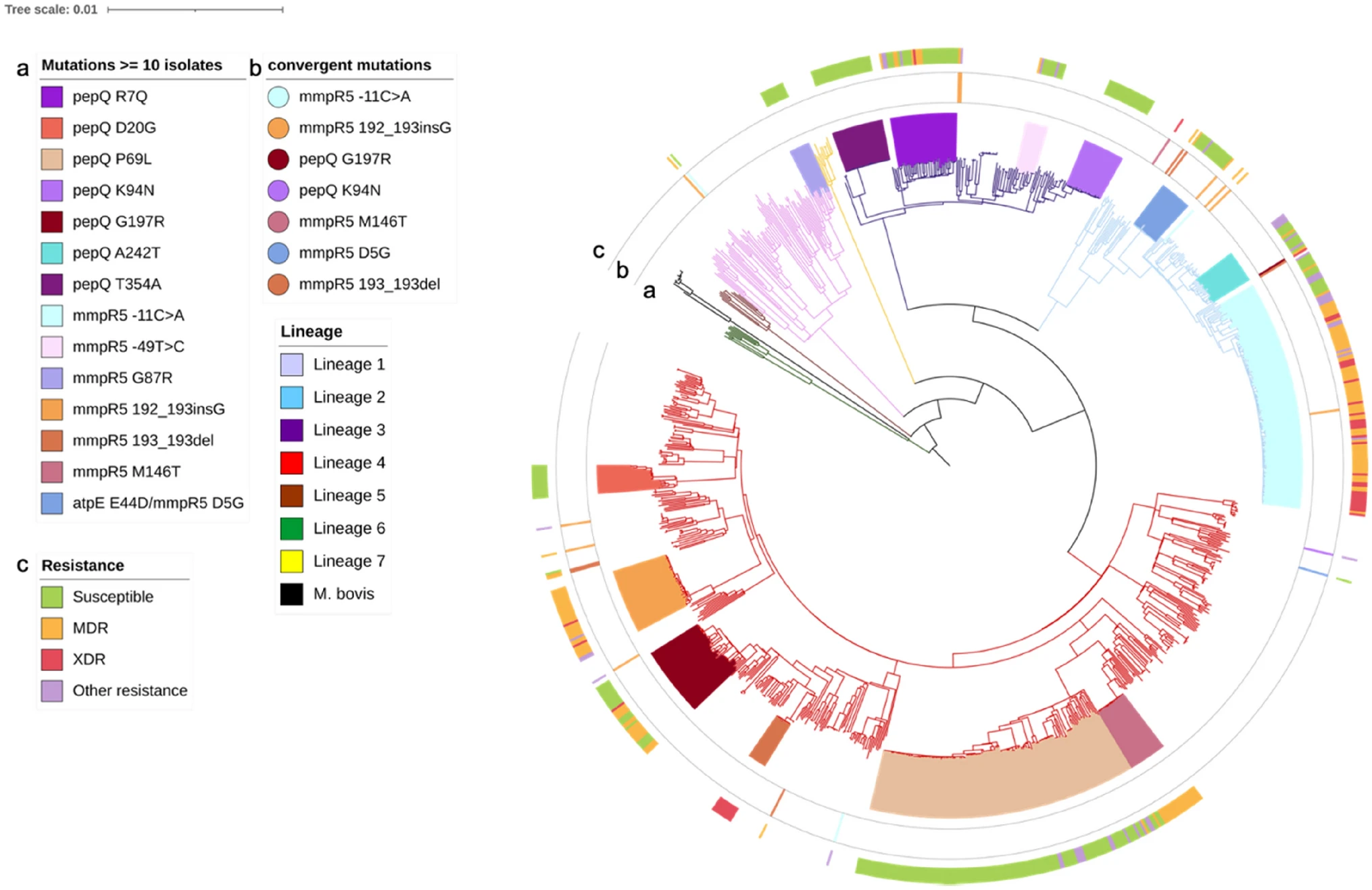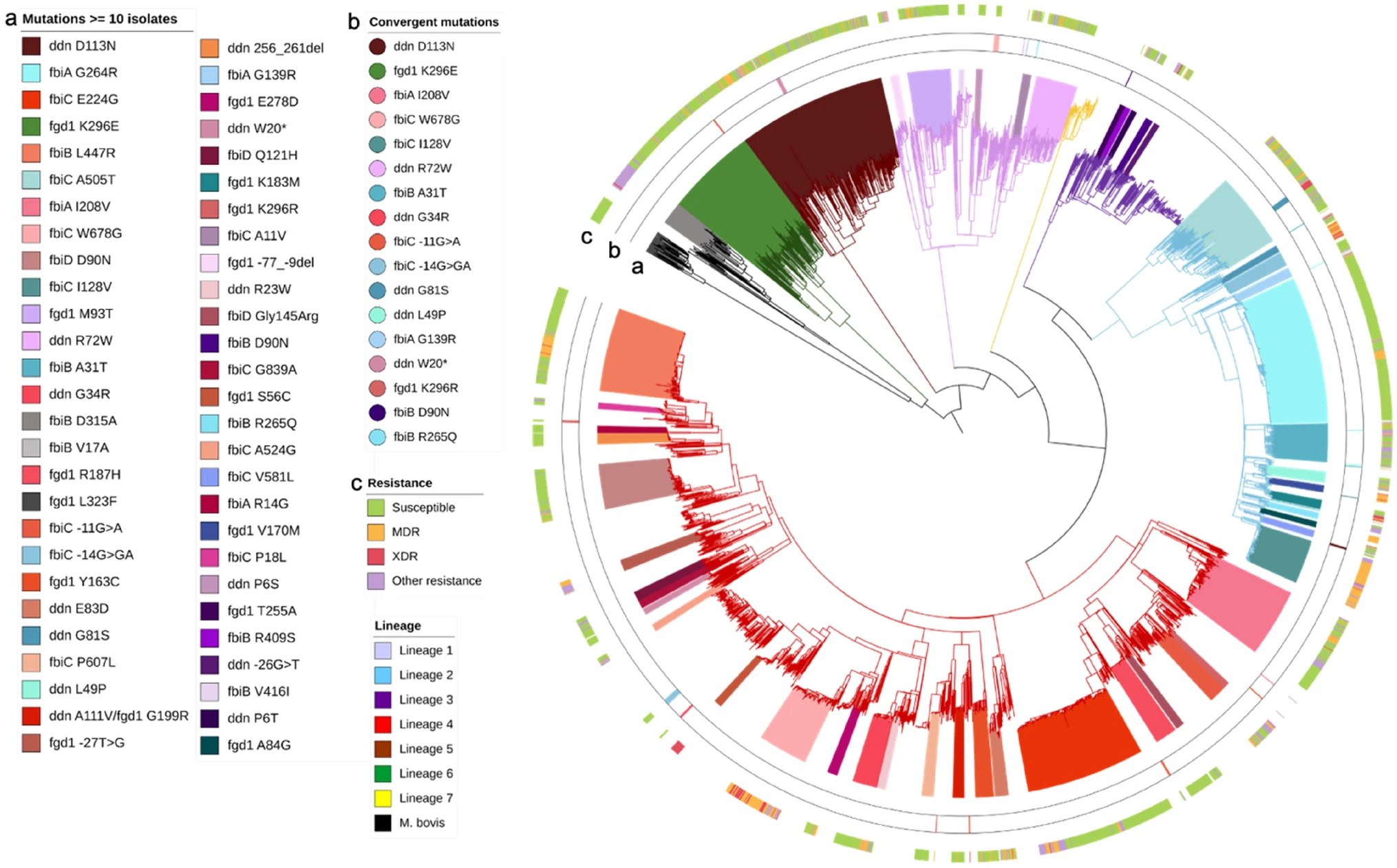Tuberculosis (TB), caused by Mycobacterium tuberculosis, is one of the deadliest infectious diseases worldwide, leading to 10 million human cases and 1.4 million associated deaths in 2019. Most cases are found in Asia, Africa, and Western Pacific regions. TB drug resistance is one of the major threats to control the disease, and its expansion is exhausting treatment options, including the recent anti‑TB medications: bedaquiline (BDQ), delamanid (DLM) and pretomanid (PTM). To improve the understanding of the causative mechanisms of resistance for these drugs, this research focused in 12 M. tuberculosis’ genes, being the genetic diversity of nine of them, strongly linked to resistance, investigated across more than 33,000 isolates. The result of this study is a comprehensive mutational catalogue for BDQ and DLM/PTM associated genes that will assist with establishing associations with phenotypic resistance, which can lead to better treatment outcomes.
Genetic diversity of candidate loci linked to Mycobacterium tuberculosis resistance to bedaquiline, delamanid and pretomanid
Phylogenetic trees of high frequency mutations.
Track a shows the clades formed by isolates harbouring the same phylogenetic-related mutations; track b shows the convergent mutations that have arisen in more than one clade; track c shows the resistance phenotype. Branches are coloured by lineage as per legend.
Bedaquiline candidate genes.
Delamanid and pretomanid candidate genes.

